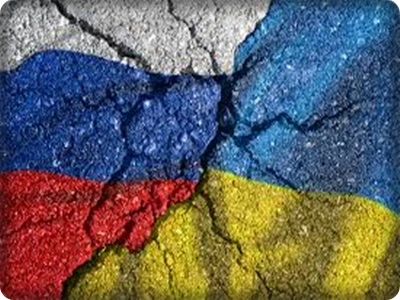In this comprehensive analysis, we delve into the ongoing conflict between Ukraine and Russia, examining the resilience of the Ukrainian people and exploring ways to push back against Vladimir Putin's autocracy. As we mark the one-year anniversary of Russia's invasion of Ukraine, it is crucial to reflect on the current situation and consider the future implications.
Introduction
The invasion of Ukraine by Russia in [year] marked a significant turning point in the geopolitical landscape of Eastern Europe. This article aims to provide a deep-dive analysis of the conflict, highlighting the resilience of the Ukrainian people and discussing strategies to counter Vladimir Putin's autocracy. We will explore the latest developments, assess the impact on Ukraine's economy and society, and consider potential solutions for lasting peace.
Historical Background
To understand the ongoing conflict, it is essential to examine the historical context. Ukraine, a former Soviet republic, gained independence in [year] following the collapse of the Soviet Union. However, the country has been grappling with political and economic challenges ever since. Russia, under Putin's leadership, has consistently sought to exert influence over Ukraine, viewing it as a crucial strategic asset.
The Invasion and its Aftermath
In [year], Russia launched a full-scale invasion of Ukraine, sparking international condemnation. The invasion quickly escalated into a military conflict, with both sides engaging in intense fighting. The Ukrainian people, however, demonstrated remarkable resilience and determination in the face of adversity.
Despite the initial setbacks, the Ukrainian government and armed forces managed to hold their ground in key regions, such as [region names]. The conflict led to a significant loss of life and displacement of civilians, creating a humanitarian crisis that continues to affect the country.
Economic Impact
The invasion and subsequent conflict had a devastating impact on Ukraine's economy. The country experienced a sharp decline in GDP, as industries were disrupted and foreign investment dwindled. The agricultural sector, a vital source of income for many Ukrainians, also suffered due to the conflict. The government has implemented various measures to mitigate the economic fallout, but the road to recovery remains challenging.
Social and Humanitarian Consequences
The conflict in Ukraine has had far-reaching social and humanitarian consequences. Thousands of people have been killed or injured, and many more have been displaced from their homes. The Ukrainian people have shown incredible resilience, establishing grassroots organizations to provide aid and support to those affected by the conflict.
Additionally, the conflict has strained ethnic and cultural relations within Ukraine. The country's diverse population includes Ukrainians, Russians, and other minority groups, and tensions have escalated as a result of the invasion. Rebuilding trust and fostering unity among different communities is crucial for long-term stability.
International Response
The international community has responded to the conflict with a mixture of condemnation and sanctions against Russia. The United States, European Union, and other nations have imposed economic and political sanctions to exert pressure on Russia and support Ukraine. However, finding a diplomatic solution remains a complex challenge, with negotiations often stalling due to Russia's unwillingness to compromise.
Strategies to Counter Autocracy
In light of the ongoing conflict, it is essential to explore strategies to counter Vladimir Putin's autocracy and support Ukraine. One approach is to strengthen international alliances and cooperation, creating a united front against Russian aggression. This includes providing military support, economic assistance, and diplomatic backing to Ukraine.
Another crucial aspect is promoting democracy and good governance within Ukraine. By supporting democratic institutions and empowering civil society, the Ukrainian people can assert their independence and resist external influence. Additionally, fostering economic development and reducing corruption will help create a stable and prosperous Ukraine.
Looking Ahead: Future Implications
As we reflect on the one-year anniversary of the invasion, it is crucial to consider the future implications of the conflict. The resolution of this crisis will not only shape the geopolitical landscape of Eastern Europe but also have broader implications for international relations. Finding a peaceful and lasting solution is paramount to prevent further destabilization in the region and safeguard the principles of sovereignty and self-determination.
Conclusion
The conflict between Ukraine and Russia has had a profound impact on both countries and the international community. The resilience of the Ukrainian people in the face of adversity is commendable, but the challenges they continue to face are significant. By understanding the historical background, economic impact, and social consequences, we can better formulate strategies to counter autocracy and support Ukraine's path towards stability and prosperity.
As we reflect on this one-year milestone, let us remember the importance of standing together and supporting those who strive for peace and justice in the face of adversity.



